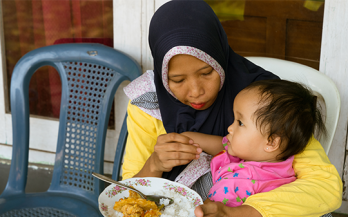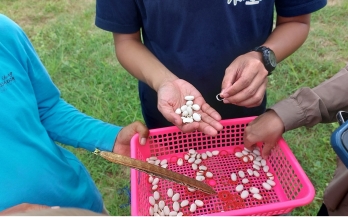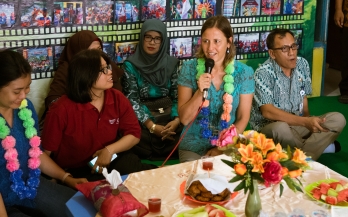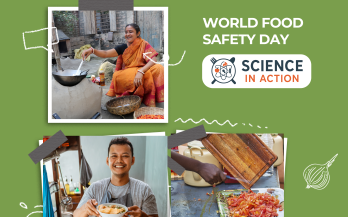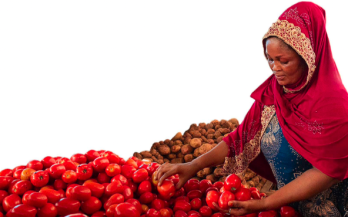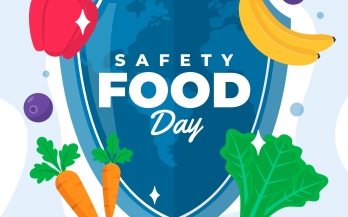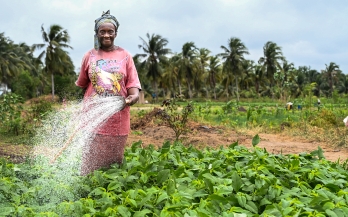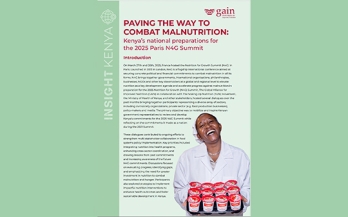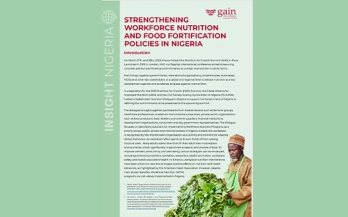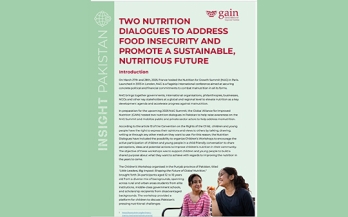- 16/06/2025
Indonesia’s 2025 update of its Food Security and Vulnerability Atlas (FSVA) marks a transformative leap in the nation’s
commitment to building a resilient, data-driven food system. While the FSVA has been updated annually in previous years, the 2025 edition introduces major innovations, including the use of village-level data for over 83,000 villages, expanded sub-district analysis, and the integration of new composite indicators and predictive modeling. These advances enable the more precise identification of food-insecure areas, supporting targeted actions aligned with national priorities, such as reducing stunting, alleviating poverty, and promoting rural development. With these enhancements, FSVA 2025 strengthens Indonesia’s capacity to deliver evidence-based, locally tailored
interventions across all levels of government.
Did you know that nearly 90% of soybeans (3 million tonnes) in Indonesia are still imported? Soybean is dominantly used to produce tempeh – a traditional food as one of the main plant protein sources with high nutritional value and has been consumed in Indonesia since the 16th century. The consumption of tempeh in Indonesia holds deep historical and cultural significance, yet ironically it currently relies on imported soybean from North and South America. GAIN Indonesia is currently working in 2 provinces on diversifying bean supply for tempeh production to increase resilience of tempeh production.
- 09/06/2025
The Nutrition for Growth (N4G) Summit 2025 is set to be a defining global event, providing a vital platform for countries to reaffirm and strengthen their commitments toward ending all forms of malnutrition. This summit holds global significance as it seeks to accelerate progress toward the Sustainable Development Goals (SDGs), particularly goals related to nutrition, health, and sustainable food systems. For Indonesia, the 2025 Summit represents an opportunity to build upon and deepen its commitments from previous summits, specifically targeting persistent challenges such as stunting, wasting, obesity, and anemia, while reinforcing systemic integration of nutrition within broader health and social protection frameworks.
Every year, unsafe food makes 600 million people sick and claims 420,000 lives – including 125,000 children under five (World Health Organization, 2015). These aren’t just numbers; they’re a call to action. At GAIN, we are using science and evidence to change this. For World Food Safety Day, we are spotlighting 10 ways we’ve advanced food safety over the past year.
- 03/06/2025
The food safety regulatory framework in Tanzania is characterized by the absence of a comprehensive, overarching policy framework dedicated solely to food safety. Instead, food safety governance is fragmented across various laws and regulations managed by different institutions each addressing specific aspects of food safety.
GAIN is working to improve the consumption of healthier diets for all, especially the most vulnerable. We know that if food is not safe, it is not food. That is why our mission includes improving the availability, affordability, desirability, and sustainability of nutritious and safe foods, and reducing the consumption of unhealthy and unsafe foods.
From March 27 to 28, 2025, The Government of France hosted the 2025 Nutrition for Growth (N4G) Summit in Paris. The N4G Summit is an international conference dedicated to defeating all forms of malnutrition by bringing together governments, international organisations, philanthropies, businesses, NGOs and other key stakeholders. Its objectives are to elevate nutrition as a key priority on the global development agenda and secure concrete political and financial commitments to accelerate progress against malnutrition.
In alignment with its mission to enhance nutrition outcomes by improving the consumption of nutritious and safe food for all people, GAIN registered two new commitments under the Nutrition Accountability Framework (NAF) to ensure accountability in achieving its objectives. These commitments build upon those that GAIN initially registered at the 2021 Tokyo N4G Summit.
- 09/04/2025
On March 27th and 28th, 2025, France hosted the Nutrition for Growth Summit (N4G) in Paris. Launched in 2013 in London, N4G is a flagship international conference aimed at securing concrete political and financial commitments to combat malnutrition in all its forms. N4G brings together governments, international organisations, philanthropies, businesses, NGOs and other key stakeholders at a global and regional level to elevate nutrition as a key development agenda and accelerate progress against malnutrition.In preparation for the 2025 Nutrition for Growth (N4G) Summit, The Global Alliance for Improved Nutrition (GAIN) in collaboration with The Scaling Up Nutrition (SUN) Movement, the Ministry of Health of Kenya, and other stakeholders, hosted several dialogues over the past months bringing together participants representing a diverse array of sectors, including civil society organizations, private sector (e.g. food production businesses), policy-makers and media. The primary objective was to mobilize and inspire Kenyan government representatives to review and develop Kenya's commitments for the 2025 N4G Summit while reflecting on the commitments it made as a nation during the 2021 Summit.
- 09/04/2025
On March 27th and 28th, 2025, France hosted the Nutrition for Growth Summit (N4G) in Paris. Launched in 2013 in London, N4G is a flagship international conference aimed at securing concrete political and financial commitments to combat malnutrition in all its forms. N4G brings together governments, international organisations, philanthropies, businesses, NGOs and other key stakeholders at a global and regional level to elevate nutrition as a key development agenda and accelerate progress against malnutrition. In preparation for the 2025 Nutrition for Growth (N4G) Summit, the Global Alliance for Improved Nutrition (GAIN) and the Civil Society Scaling Up Nutrition in Nigeria (CS-SUNN) hosted a Stakeholder Nutrition Dialogue in Nigeria to support the Government of Nigeria in defining the commitments to be presented at the upcoming summit.
- 09/04/2025
On March 27th and 28th, 2025, France hosted the Nutrition for Growth Summit (N4G) in Paris. Launched in 2013 in London, N4G is a flagship international conference aimed at securing concrete political and financial commitments to combat malnutrition in all its forms.
N4G brings together governments, international organisations, philanthropies, businesses, NGOs and other key stakeholders at a global and regional level to elevate nutrition as a key development agenda and accelerate progress against malnutrition. In preparation for the upcoming 2025 N4G Summit, the Global Alliance for Improved Nutrition (GAIN) hosted two nutrition dialogues in Pakistan to help raise awareness on the N4G Summit and mobilize public and private sector actors to help address malnutrition.
